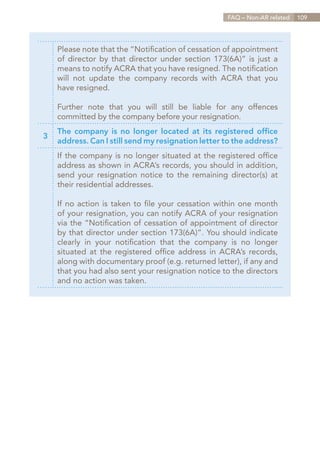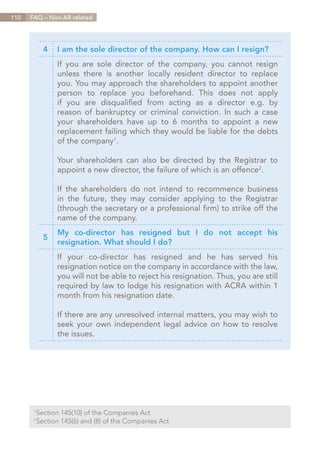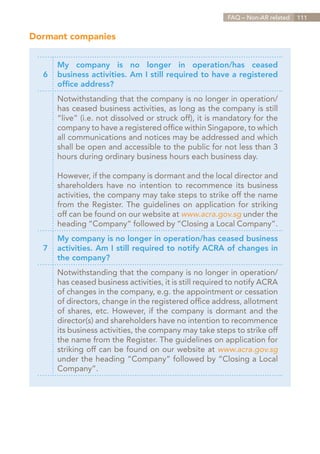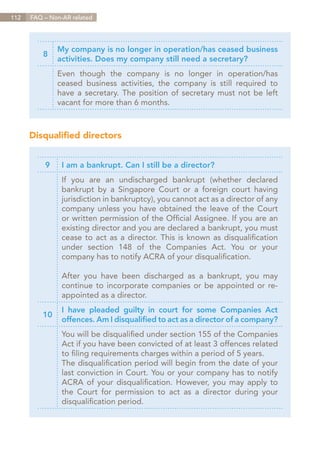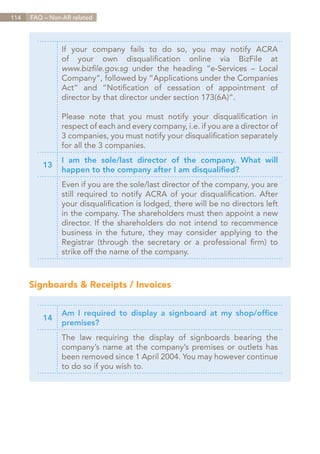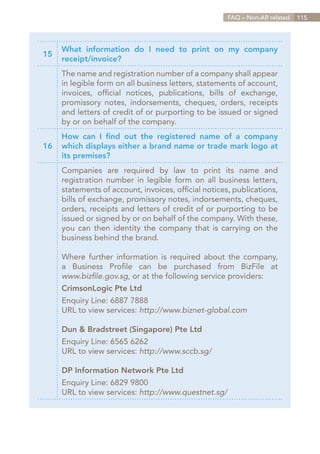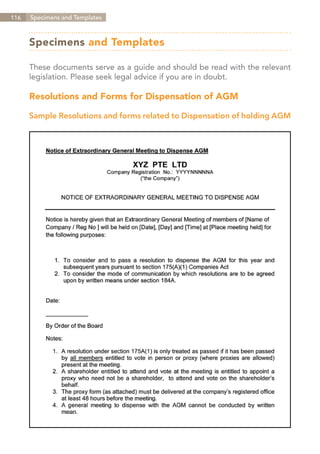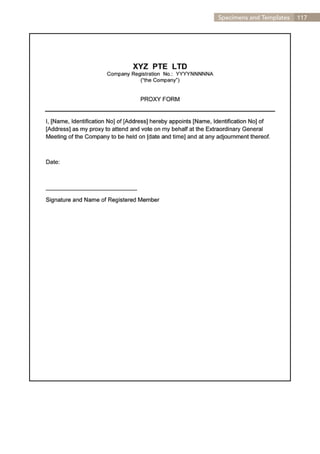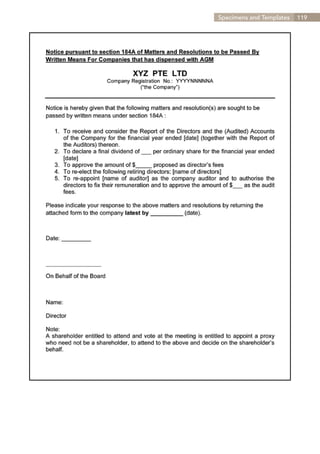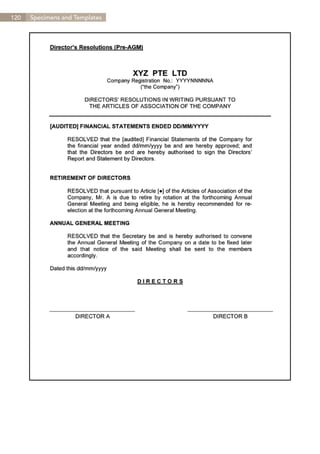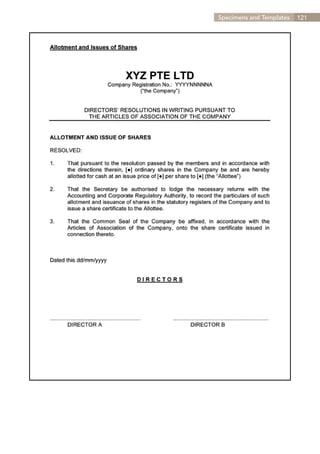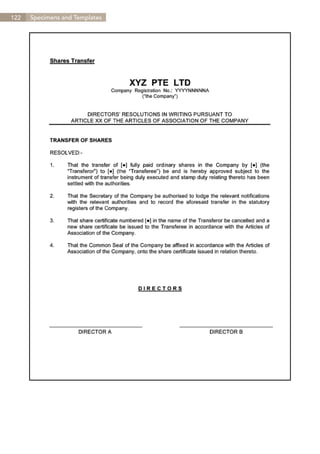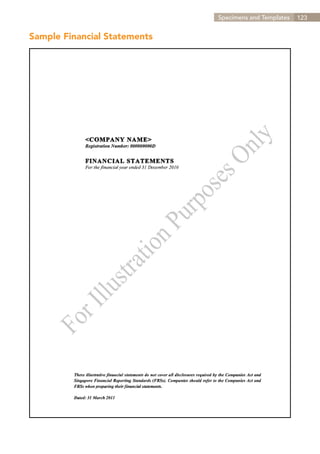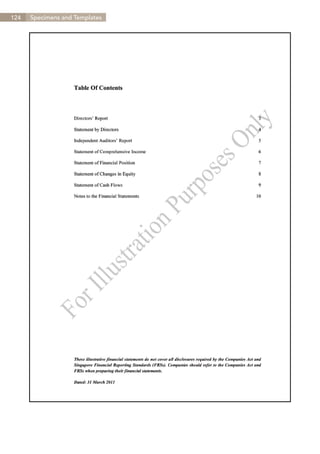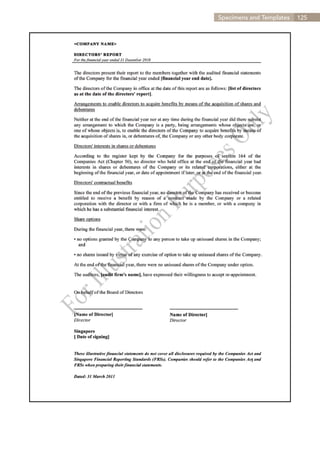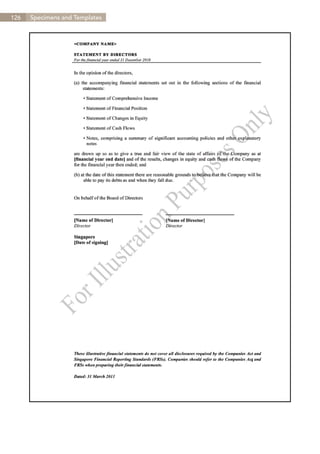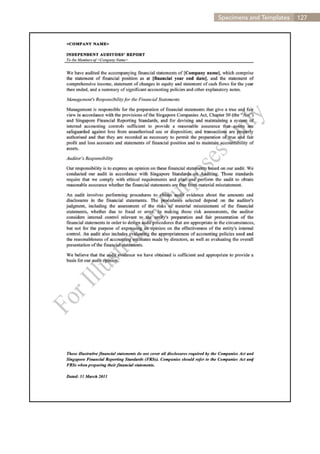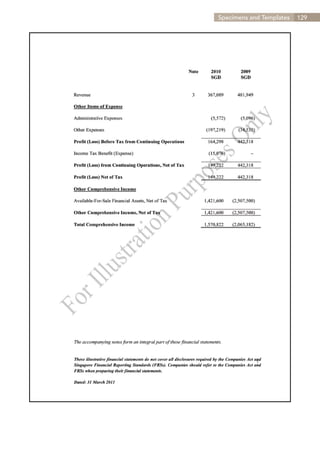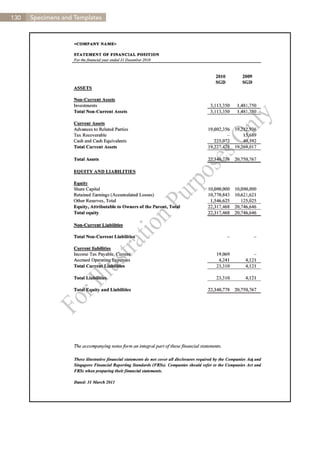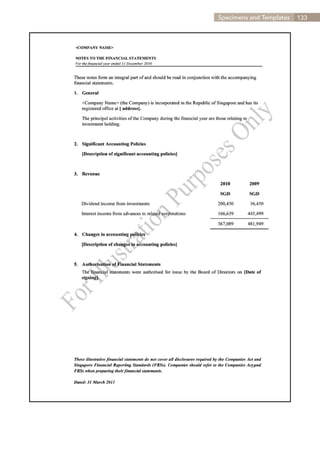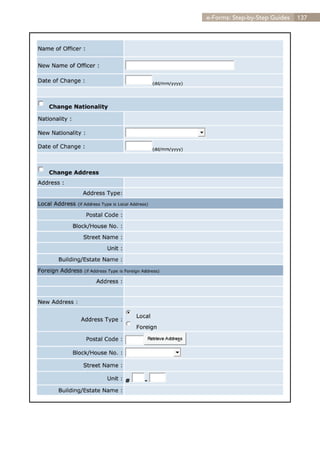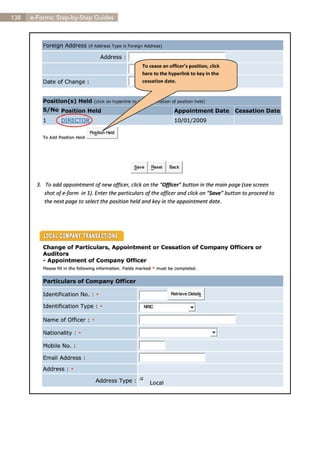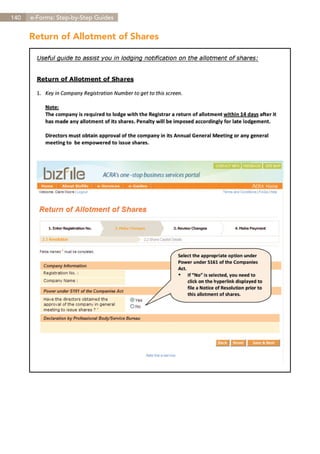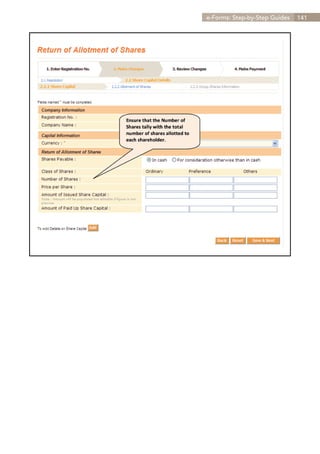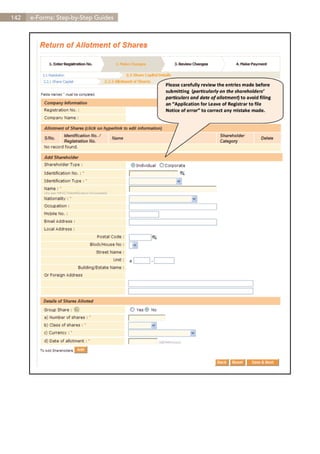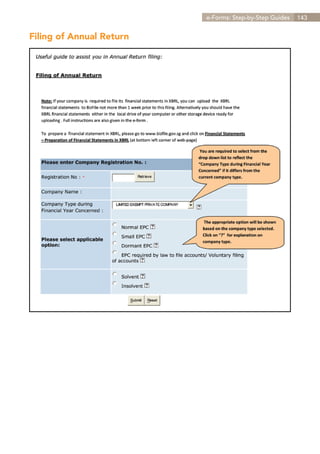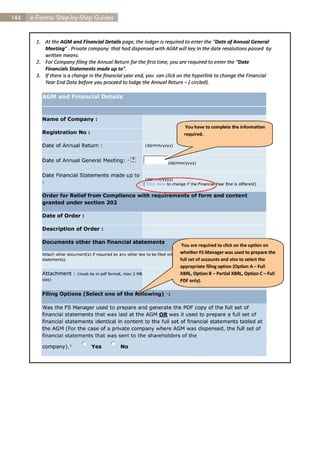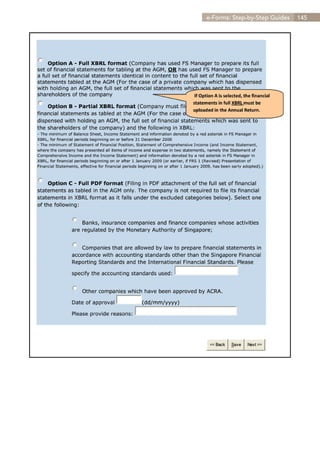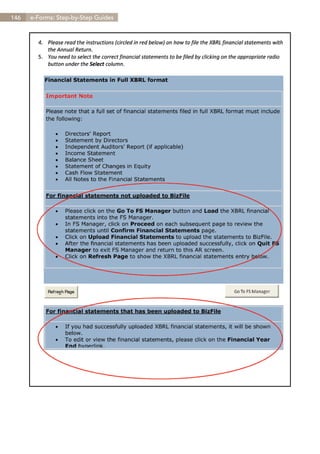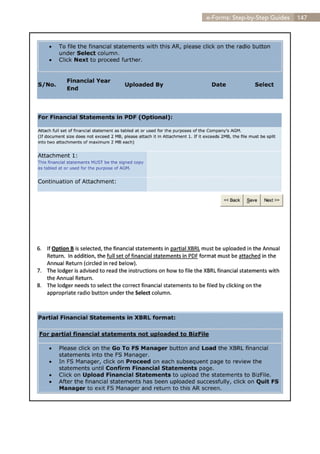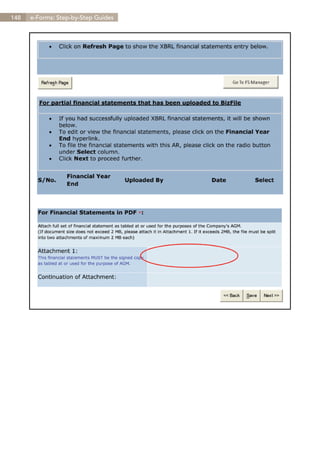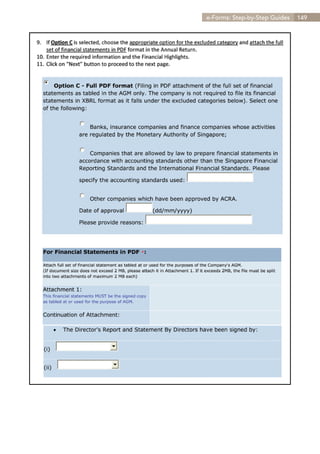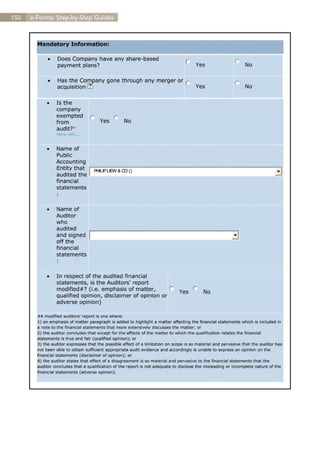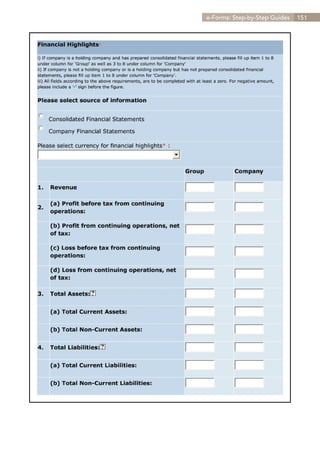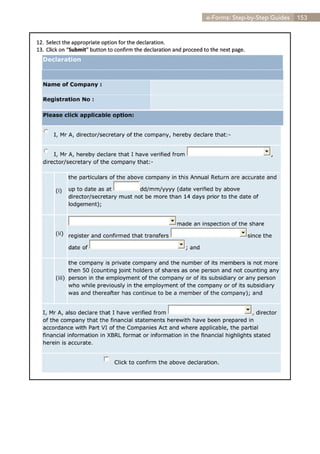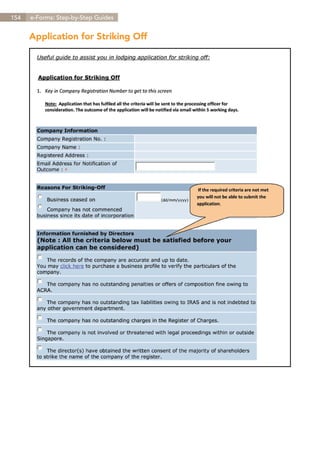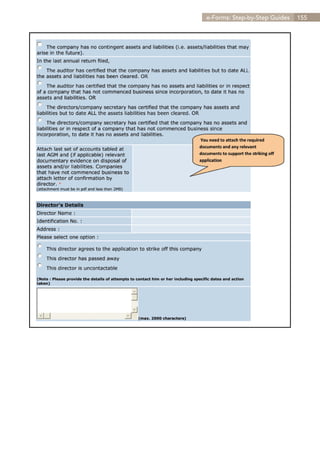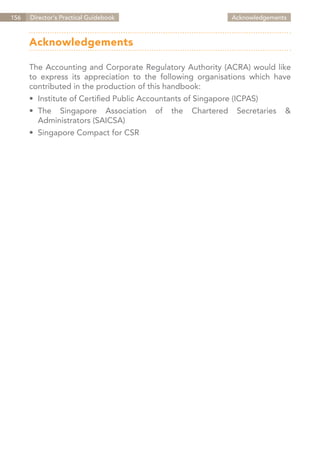The document is a handbook published by the Accounting and Corporate Regulatory Authority (ACRA) aimed at guiding both new and existing company directors in Singapore regarding their roles, responsibilities, and regulatory obligations. It outlines the requirements for being a director, including disqualification criteria and compliance with legal responsibilities, emphasizing the importance of corporate governance. Additionally, the handbook serves as a resource for professional advisers assisting clients in understanding the necessary legal frameworks and compliance requirements in the business environment.

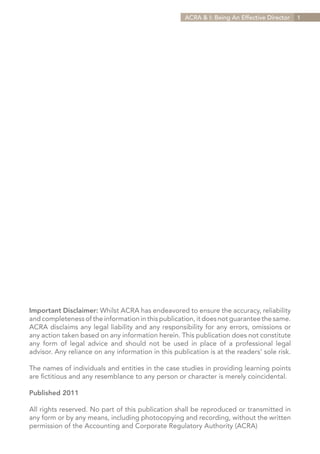
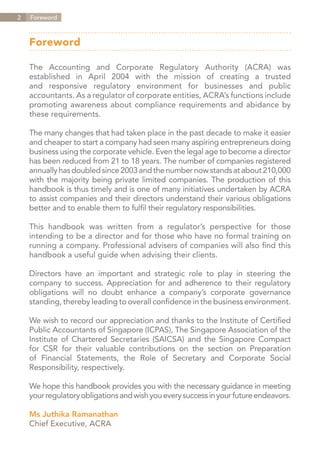




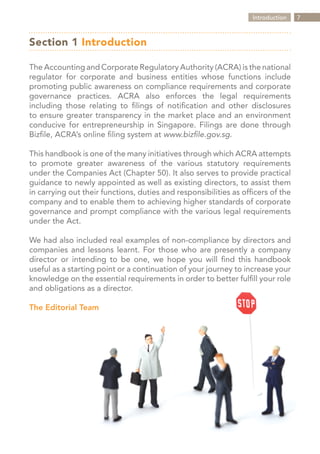
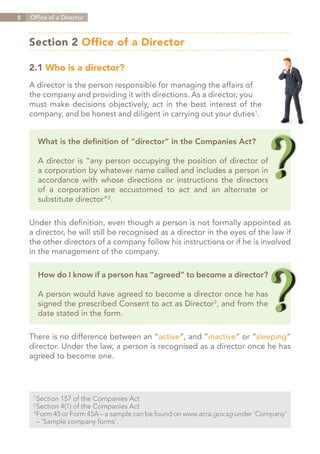
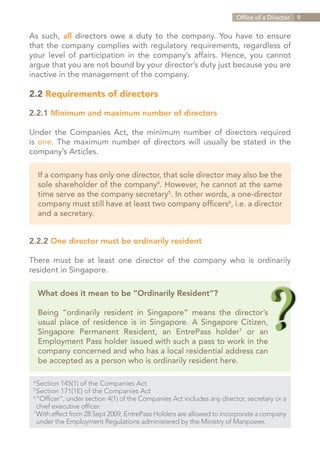
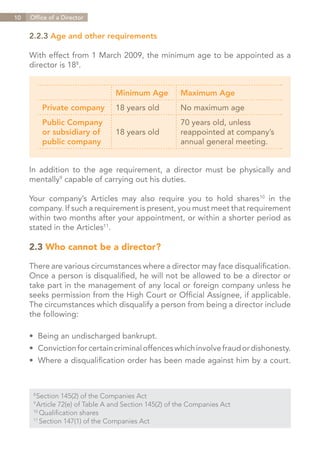
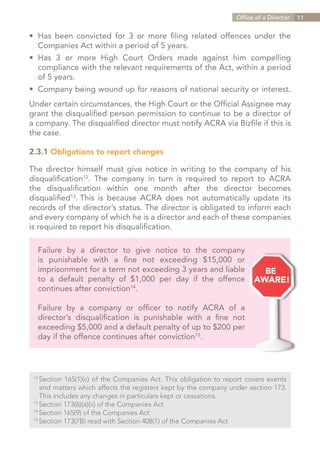
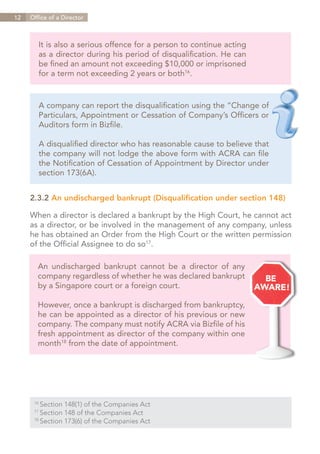
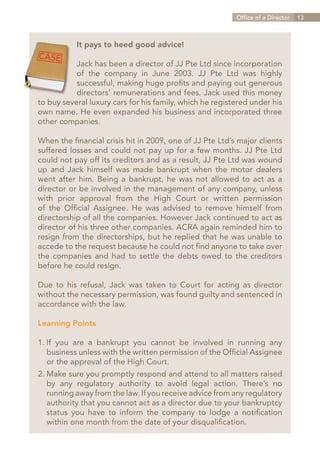
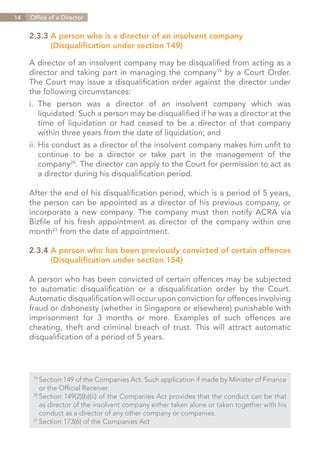
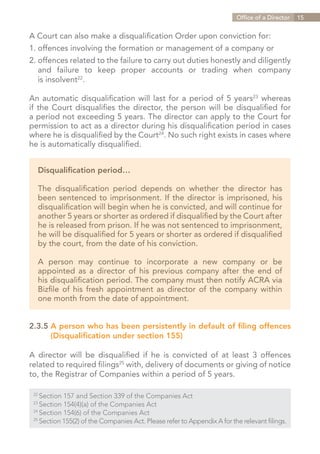
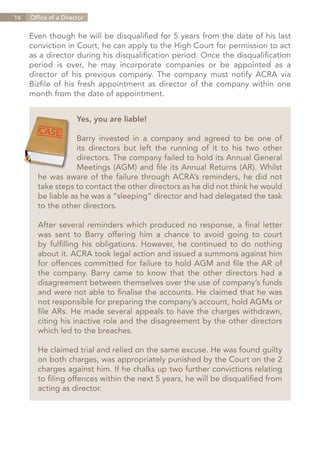
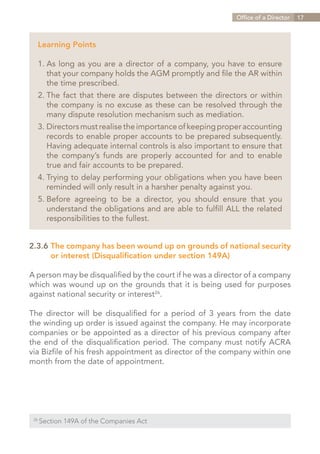
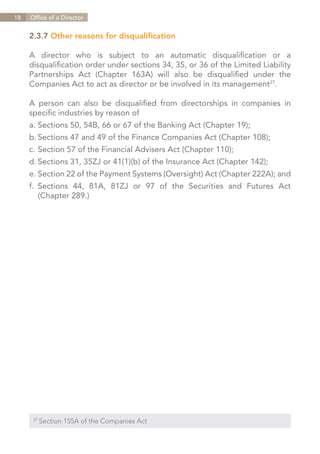
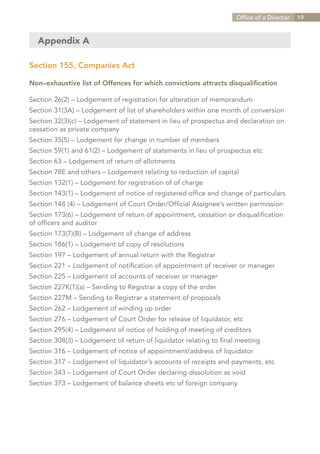
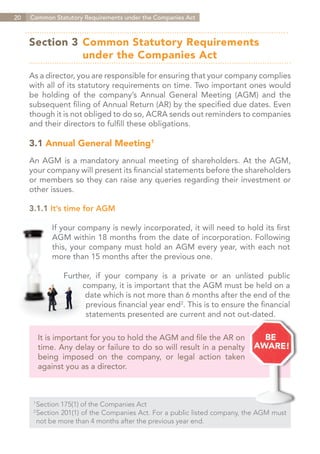
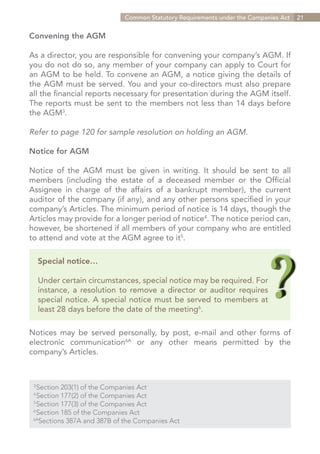
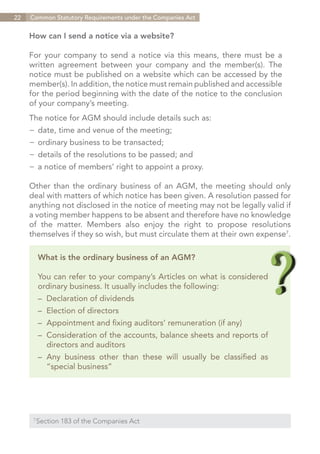
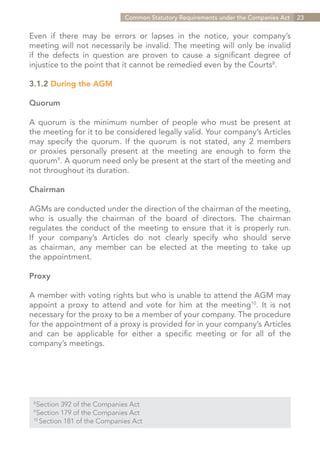
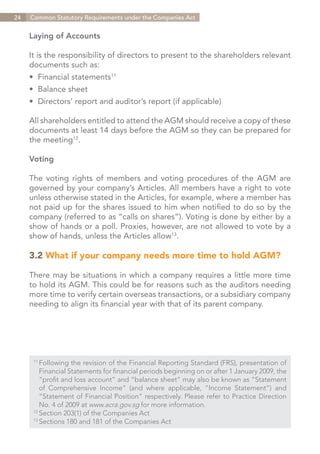
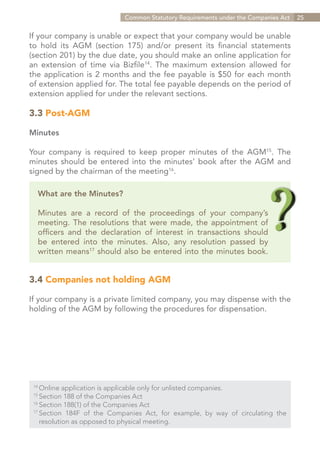
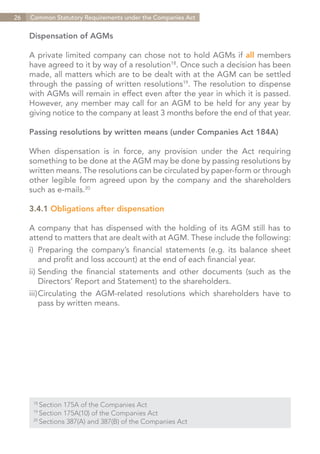
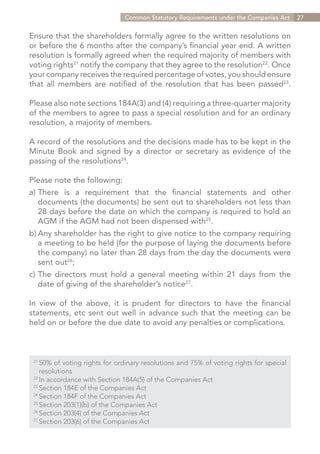
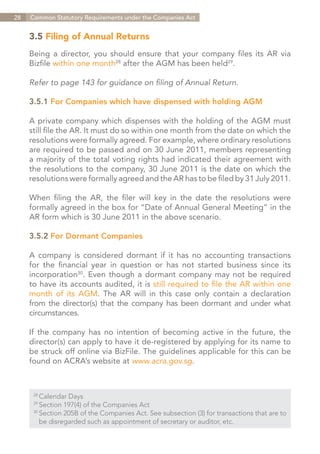
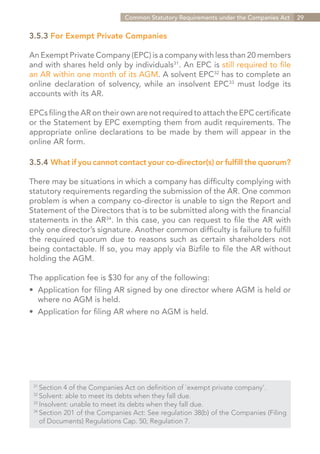
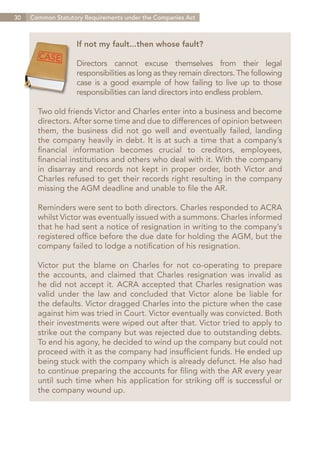
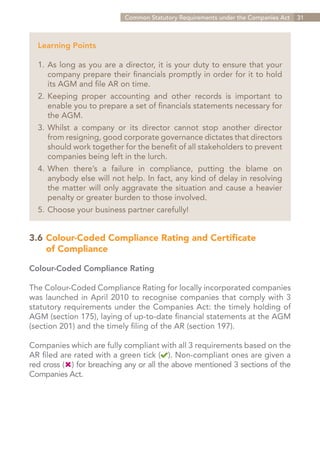
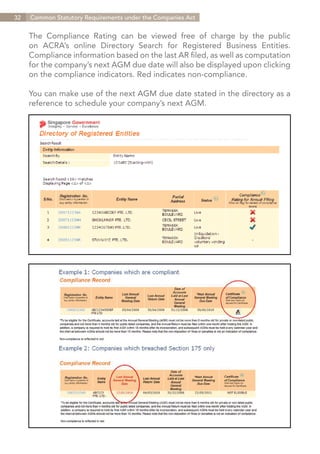
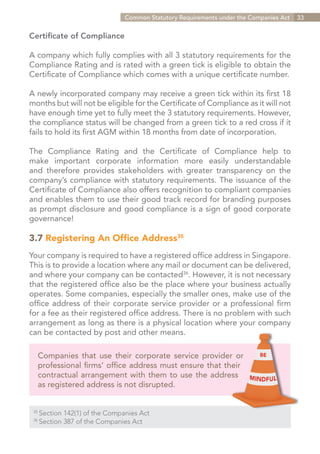
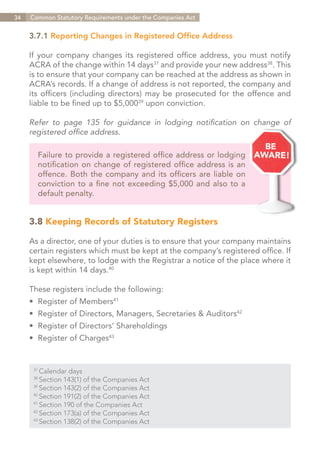
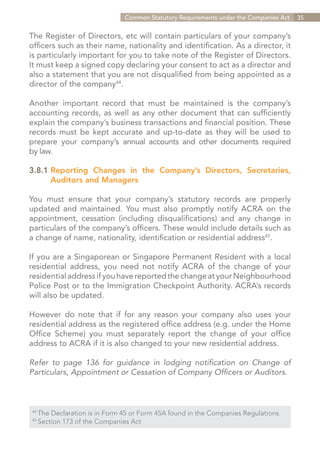
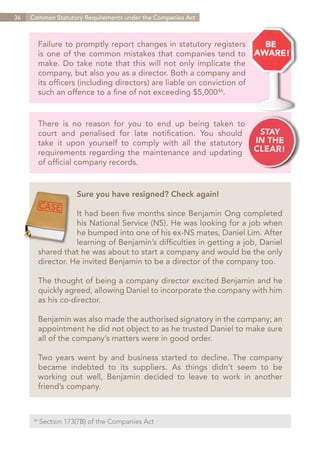
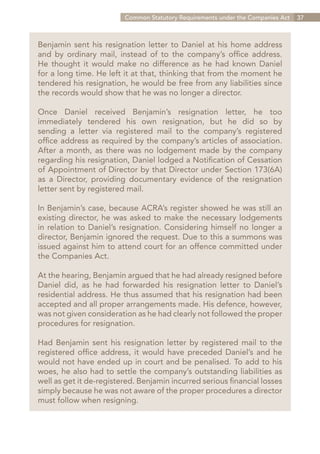
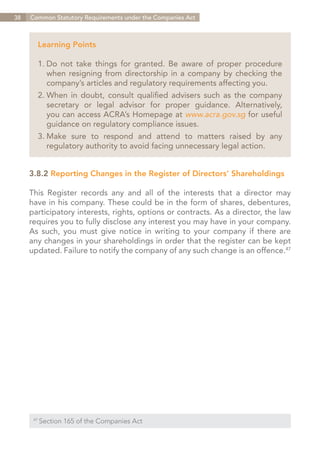
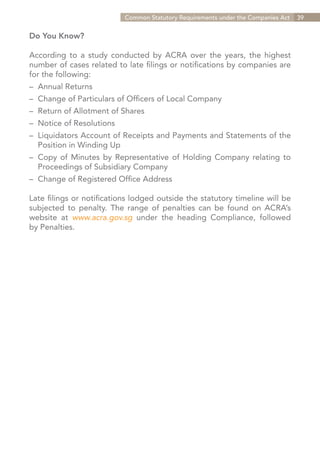
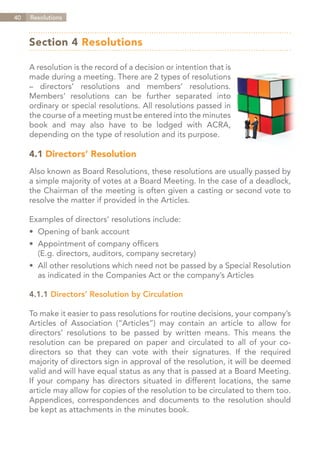
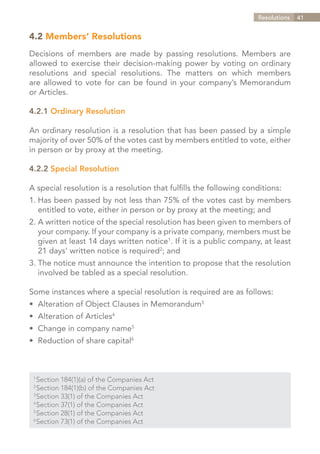
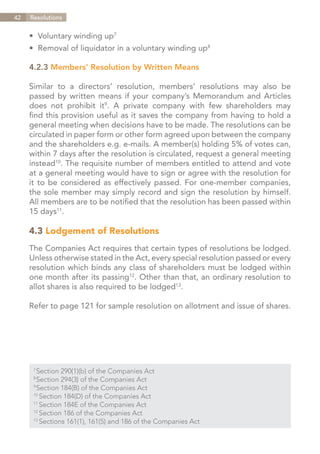
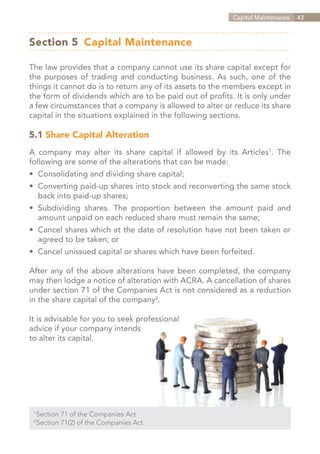
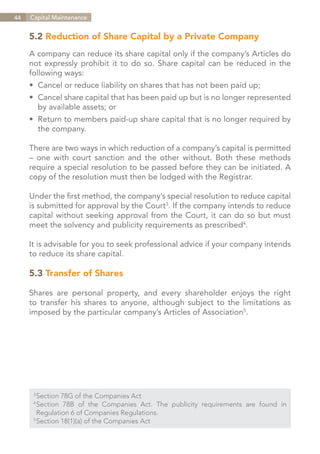
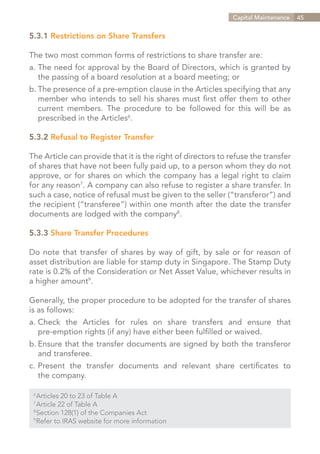
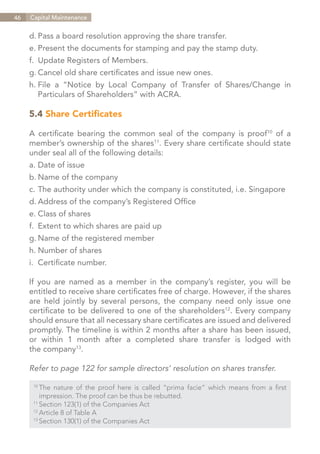
![Fiduciary Duties of a Director 47
Section 6 Fiduciary Duties of a Director
6.1 Duties of a director
To carry out your duties as a director well, it is necessary for you to be fully
aware of the duties and responsibilities expected of directors.
Directors are fiduciaries of the company which appoints them. A fiduciary
is a person who is expected to act in the interests of another person.
Hence, as a director, you have a duty to act in the way you honestly believe
to be in the best interest and benefit of the company.
Creanovate Pte Ltd and another v Firstlink Energy Pte
Ltd and another appeal [2007] 4 SLR(R) 780
Ngu and Tang were directors of Firstlink Energy Pte Ltd
(‘Firstlink’). Tang was also the majority and controlling
shareholder of Creanovate Pte Ltd (‘Creanovate’). Tang
wrote to Firstlink inviting it to participate in a coal-mining investment.
Monies had been advanced by Firstlink to Creanovate under a
subscription agreement which totalled up to $4.26m, purportedly for
the purpose of the coal-mining investment. However, the conditions
precedent under that agreement were not fulfilled in time. Firstlink
then sued Creanovate for the return of the monies. They also sued
Ngu and Tang claiming that, in permitting a total of $4.26m to be
advanced to Creanovate and/or Tang, they had breached their
fiduciary duties.
There was overwhelming evidence that Ng and Tang had diverted
the $4.26m advanced by Firstlink for their own benefit. Evidence had
been led that moneys which Firstlink had advanced to Creanovate
had, after they were banked in, been diverted to Ngu and Tang,
and, in several instances, for payment to Ngu’s stockbrokers. The
Court held that there were clear breaches of their fiduciary duties as
directors of Firstlink, both in equity and under section 157 of the Act.
The Court found that the directors had misappropriated company
funds for their own use and that they would be liable for the sum.
Contents](https://image.slidesharecdn.com/directorsroleresponsibilitysingaporeacra-130112234943-phpapp02/85/Directors-role-responsibility_singapore_acra-48-320.jpg)
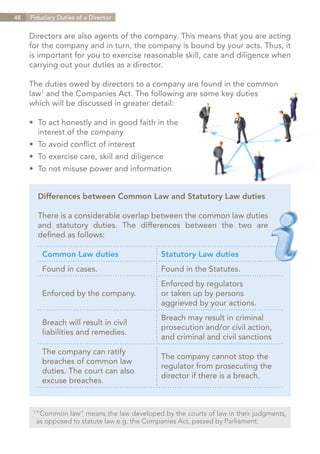
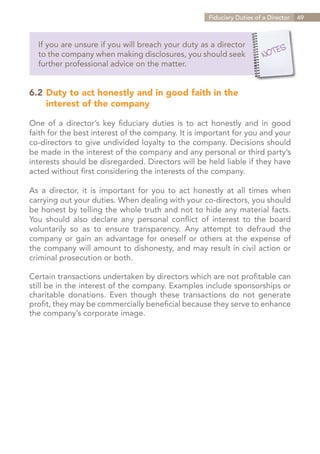
![50 Fiduciary Duties of a Director
Multi-Pak Singapore Pte Ltd v Intraco Ltd [1994] 2
SLR 282
Multi-Pak issued shares to Intraco in return for a debt
owed to Intraco by City Carton, a company related to
Multi-Pak. City Carton was not likely to repay the debt
and so the transaction was not beneficial to Multi-Pak on
the face of it. However, when the transaction was challenged, the
court recognised that there was a benefit to Multi-Pak in forming a
strategic business alliance with Intraco and therefore held that there
was no breach of directors’ duties involved.
Facts which lead to a breach under the common law may also amount
to a breach under statutory law. This may in turn result in both civil and
criminal liabilities. Hence, it is beneficial for you as a director to at all time
act honestly and in good faith for the best interest of the company.
6.3 Duty to avoid conflicts of interest
Under both common and statutory law, a director should not place himself
in a position where the interests of the company come into conflict with
his personal interest. It is therefore important for you as a director to be
familiar with the common circumstances where conflicting interests may
arise. It is also necessary for you to be aware of disclosure requirements
applicable if you should find yourself in any of these circumstances.
The following are some instances where there may be conflicting interests:
1. Transactions with company
An instance where conflicting interests may arise is when the director
directly or indirectly enters into transactions with the company, for
example, buys from or sells property to the company.
2. Taking advantage of corporate information and opportunities
Directors are not allowed to take over corporate property such as business
opportunities and information without the permission of the company.
For instance, directors are not allowed to divert business intended for the
company to themselves or a third party. A director who sets up another
firm to rival and compete for contracts with the company will also have
breached his fiduciary duties.
Contents](https://image.slidesharecdn.com/directorsroleresponsibilitysingaporeacra-130112234943-phpapp02/85/Directors-role-responsibility_singapore_acra-51-320.jpg)
![Fiduciary Duties of a Director 51
Avel Consultants Sdn Bhd & Anor v Mohamed Zain
Yusof & Ors [1950-1985] MSCLC 150
Three directors of Avel established a company of their own
which carried out the same business. The new company
competed against Avel and successfully canvassed
contracts from its clients. The directors were found to have breached
their fiduciary duties and made to account to Avel for all the profits
made by their new business.
Even if the company lacks the necessary expertise or
resources to take advantage of an opportunity (e.g. lack
of financial resources), there is no excuse for a director to
divert that opportunity elsewhere because it still belongs
to the company2.
Also, even if a director resigns, he does not have the right
to take advantage of any business opportunity that have
been made available to the company. This will still result
in a breach of his duty as he obtained knowledge of the
opportunity while serving as a director in the company.
3. Conflicting duties
Directors may sometimes have conflicting duties as they may be serving
as directors of more than one company. There may be potential conflict of
interest arising from the various directorships held by the director3. Hence,
it is important for the director to make disclosure to all the companies
concerned informing them of his various directorships. The declaration
must be made to the company’s board at the first meeting the director
attends after he is appointed4. Such a disclosure must be recorded in the
minutes of the meeting5.
2
Regal (Hastings) Ltd v Gulliver [1942] 1 All ER 378
3
Section 156(5) of the Companies Act
4
Section 156(6) of the Companies Act: or (if already a director) after he commenced
to hold the office.
5
Section 156(7) of the Companies Act
Contents](https://image.slidesharecdn.com/directorsroleresponsibilitysingaporeacra-130112234943-phpapp02/85/Directors-role-responsibility_singapore_acra-52-320.jpg)
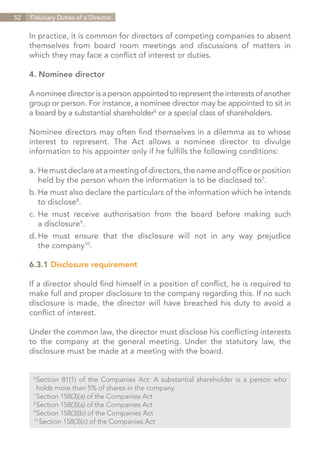
![Fiduciary Duties of a Director 53
In practice, in their Articles some companies provide that
the disclosure requirement as prescribed in the common
law will be deemed to have been complied with when
disclosure has been made to the board of directors.
Disclosure of transactions with the company
If a director is interested in any of the transactions the company is
undertaking or considering, he must make the appropriate disclosure to
the board11. The disclosure should be made at a directors’ meeting and
must be recorded in the minutes.
Disclosure of conflict arising from holding other offices
A director must make disclosure if he holds any office or property where his
interests are in conflict with his duties as a director in the company12. At a
meeting of the directors, he has to declare the fact, nature, character and
extent of the conflict and this disclosure must be recorded in the minutes.
Yeo Geok Seng v PP [2000] 1 SLR195
A director was found guilty of criminal offences for failure
to make disclosures required under section 156, when
the company transacted with other companies in which
he had an interest in as director or shareholder. Hence, if
you are a counterpart in any of your company’s sales and purchase
transactions, you should make the necessary disclosure.
Directors who fail to make proper disclosure under the
common law and section 156 of the statutory law will face
both criminal and civil liabilities. A breach of section 156
will result in a criminal offence punishable with a fine not
exceeding $5,000 or imprisonment not exceeding 1 year.
11
Section 156(1) of the Companies Act
12
Section 156(5) of the Companies Act
Contents](https://image.slidesharecdn.com/directorsroleresponsibilitysingaporeacra-130112234943-phpapp02/85/Directors-role-responsibility_singapore_acra-54-320.jpg)
![54 Fiduciary Duties of a Director
6.4 Duty of care, skill and diligence
Under both the common law and statutory law, directors are expected to
exercise reasonable care, skill and diligence in managing the company.
Section 157 of the Act specifically emphasises that directors are required
to act honestly and use reasonable diligence in carrying out their duties.
The actual skill and experience an individual director possesses is often
used as a yardstick to determine the standards that are expected of him.
For instance, if a director possesses a higher degree of qualifications or
skills, he will be judged by how he applies such knowledge and skills.
Lim Weng Kee v PP [2002] 4 SLR 327
Lim was the managing director of three pawnshops and
had been in the business for 20 years. A lady had pawned
$4 million worth of jewellery at the pawnshops as pledges
for loans. However, the jewellery did not belong to her.
When she was asked to settle the outstanding interest due, she asked
to redeem the jewellery and issued a cheque in favour of one of the
pawnshops. Lim allowed her to redeem the jewellery even before
the cheque had been cleared. The cheque was later dishonoured.
The pawnshops and their shareholders suffered substantial losses.
Although Lim had not acted with dishonesty, he was found guilty
of offences committed under section 157(1) for failing to exercise
reasonable diligence as a managing director and was fined $4,000
on each of three charges. Hence, a director may breach section 157
of the Act by failing to exercise reasonable diligence even though he
may have no dishonest intentions.
If a director fails to observe the statutory duty of due
care, he may face criminal prosecution and can be fined
up to $5,000 or imprisoned up to a year. He is also liable
to disqualification in which case he is not allowed to be
involved in managing any company for a specified period
of time. If a general duty of care is breached, the court
may also order the return of any profit gained, or payment
of compensation or damages to the company.
Contents](https://image.slidesharecdn.com/directorsroleresponsibilitysingaporeacra-130112234943-phpapp02/85/Directors-role-responsibility_singapore_acra-55-320.jpg)
![Fiduciary Duties of a Director 55
6.5 Duty not to misuse powers and information
6.5.1 Duty not to misuse powers
Directors have a duty not to misuse their powers. As a director, you should
be aware that powers conferred by the Articles should only be used for
proper purposes and the benefit of the company.
One power that is commonly misused is the power to issue shares, which
is normally intended to raise capital. However, if a director issue shares to
dilute a member’s shareholdings, gain control of the company, preserve
control of the board or prevent a takeover bid, then he has made improper
use of his powers as a director.
To prevent directors from misusing their powers in issuance
of new shares, the Act now requires directors to first obtain
approval in a general meeting before issuing any new shares13.
Howard Smith Ltd v Ampol Petroleum Ltd [1974] AC 821
The directors of Miller Ltd issued shares to Howard Smith,
a company which was trying to take over Miller. Although
Miller was in need of funds, it was found that the directors
had issued the shares for the purpose of assisting Howard
Smith’s takeover bid. The issue of shares was therefore nullified on
the grounds of improper use of directors’ powers.
6.5.2 Duty not to misuse information
The Act specifically states that an officer of a company should not make
improper use of any information acquired by virtue of his position14.
Hence, as a director, you should use such information only for proper
purposes and not to profit or benefit yourself or others.
13
Section 161 of the Companies Act
14
Section 157(2) of the Companies Act
Contents](https://image.slidesharecdn.com/directorsroleresponsibilitysingaporeacra-130112234943-phpapp02/85/Directors-role-responsibility_singapore_acra-56-320.jpg)
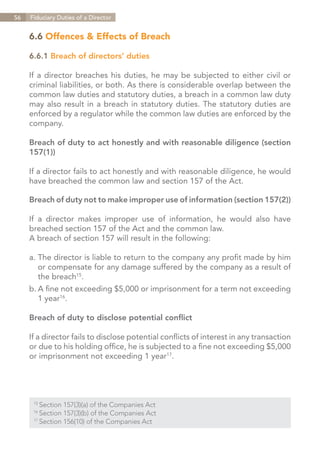
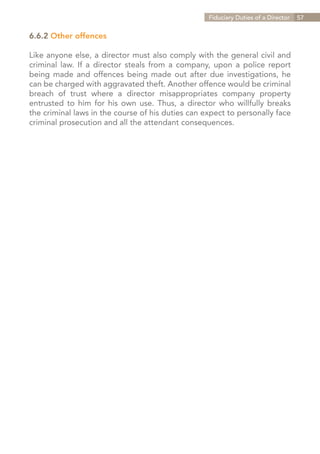
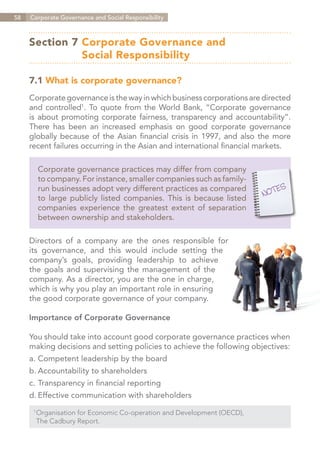
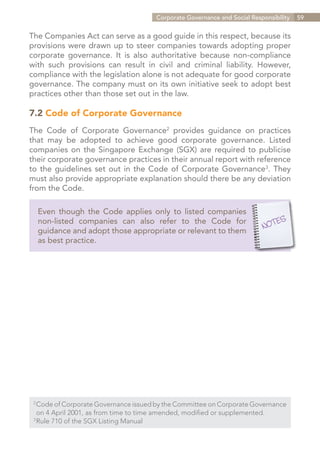
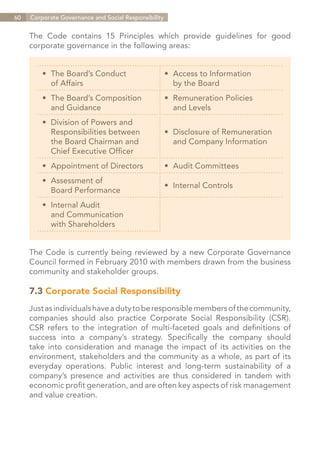
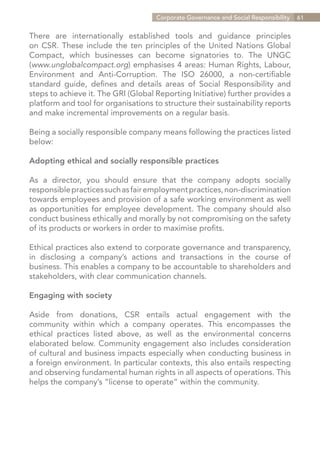
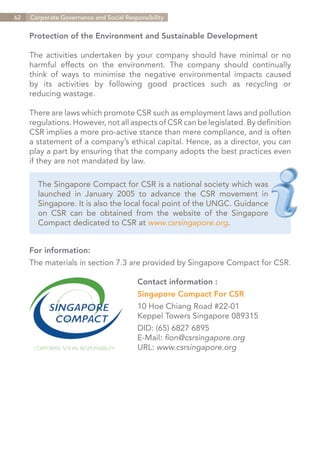
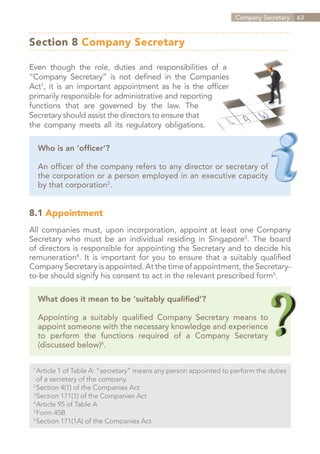
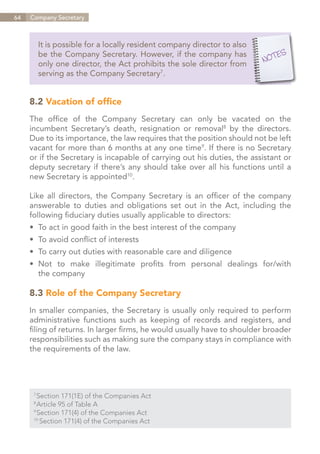
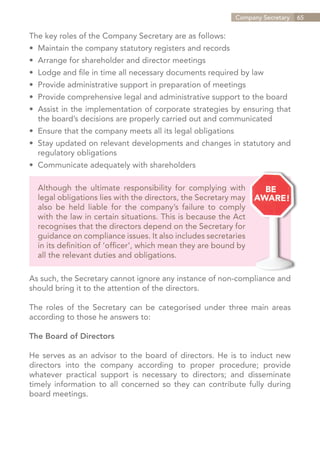
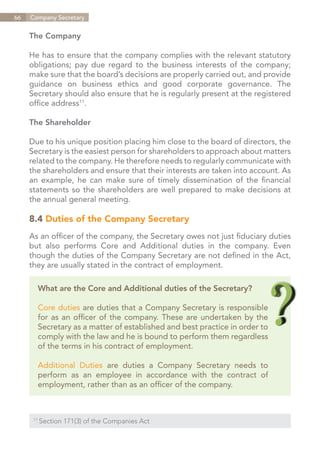
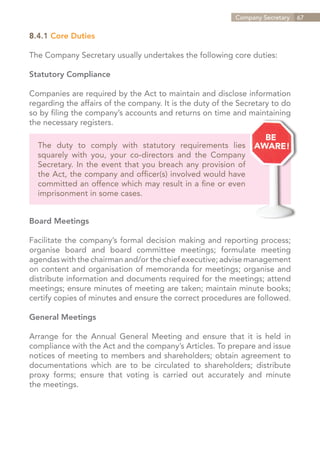
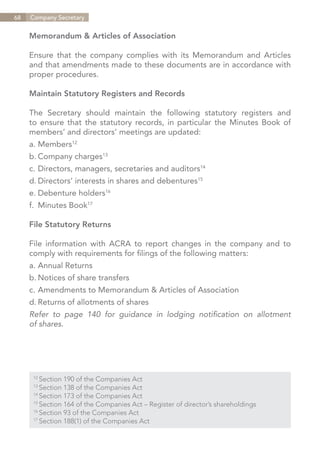
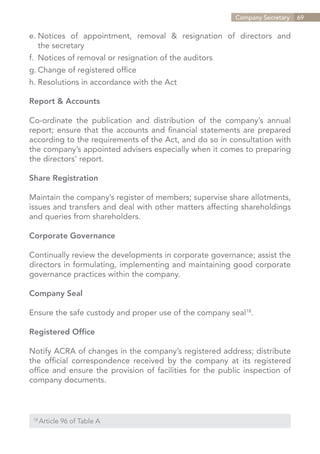
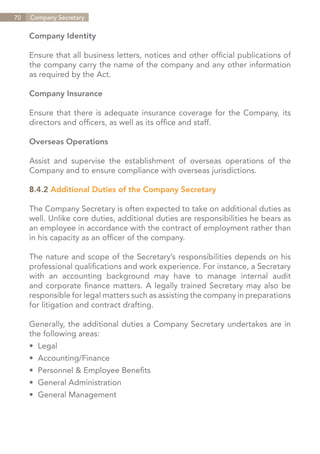
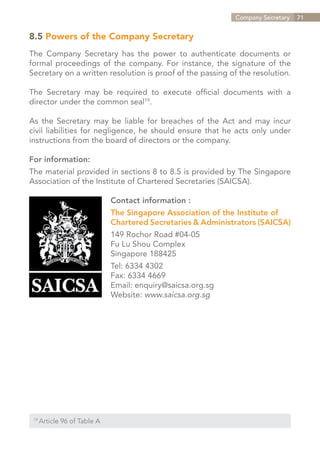
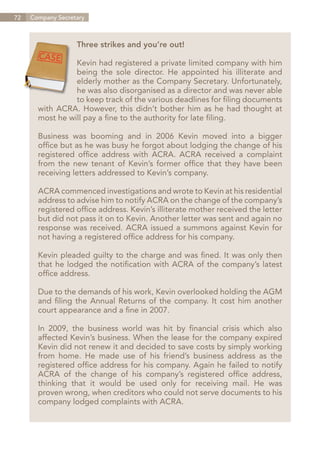
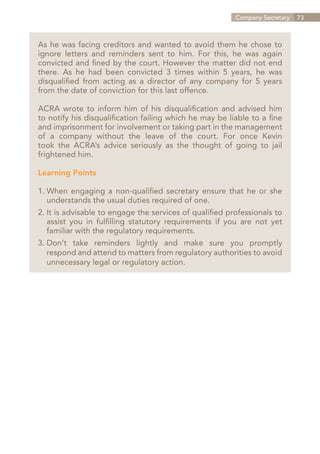
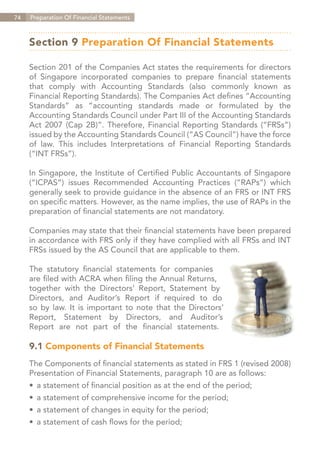
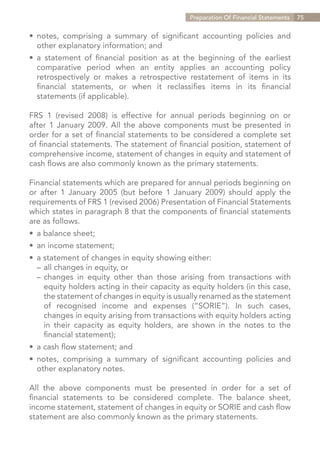
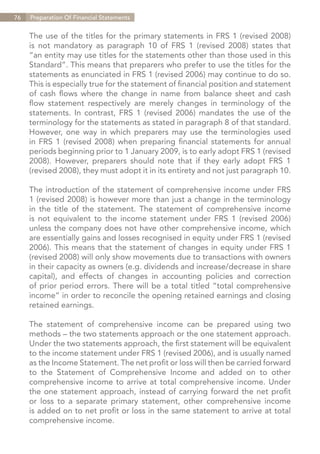
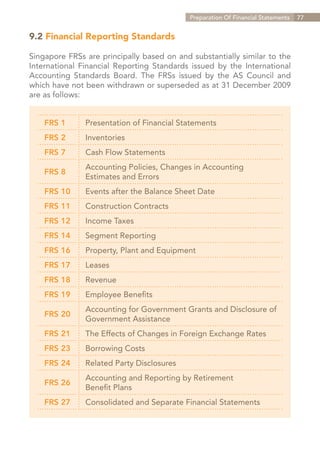
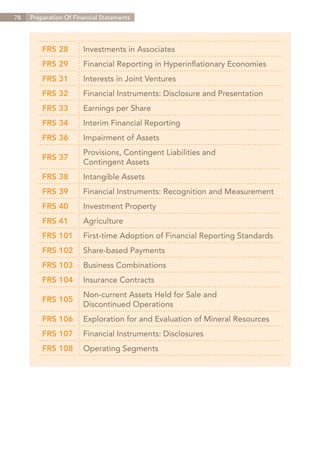
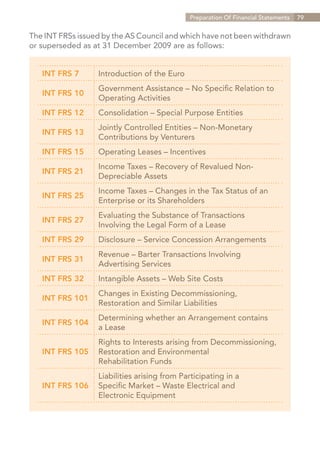
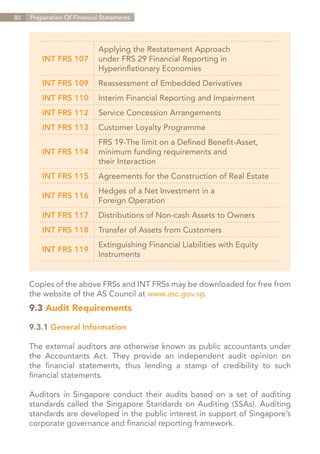
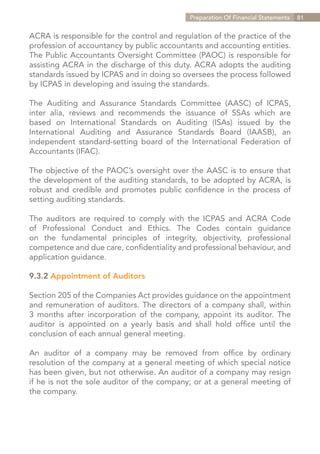
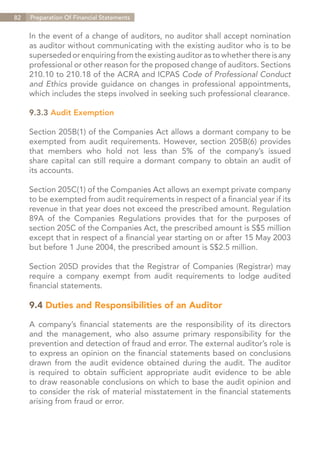
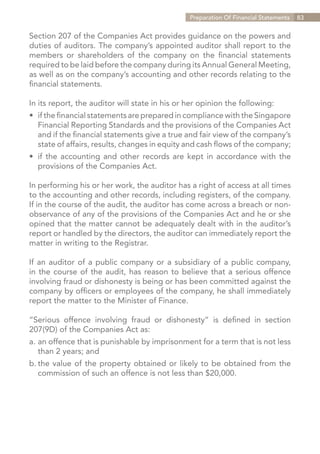
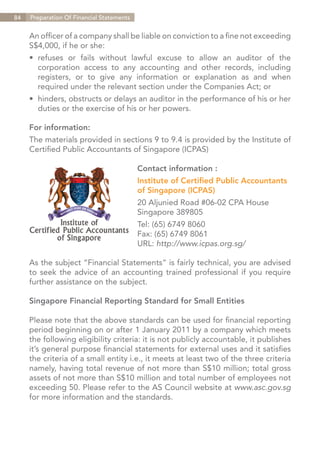
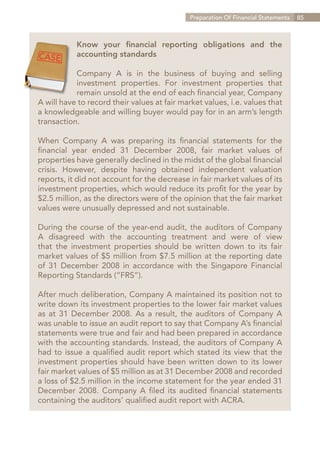
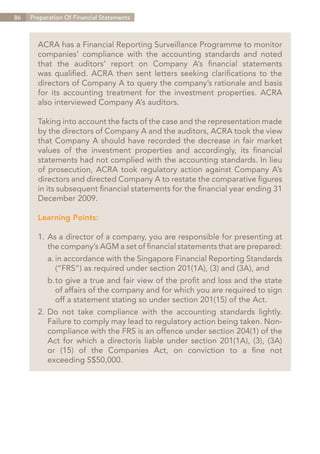
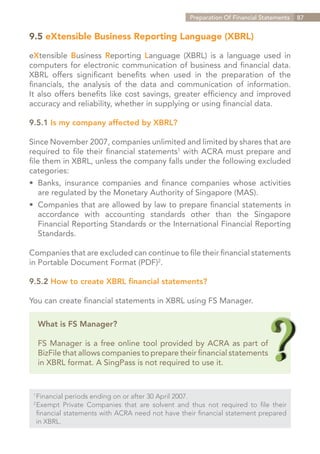
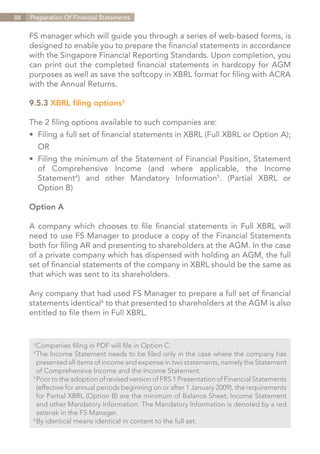
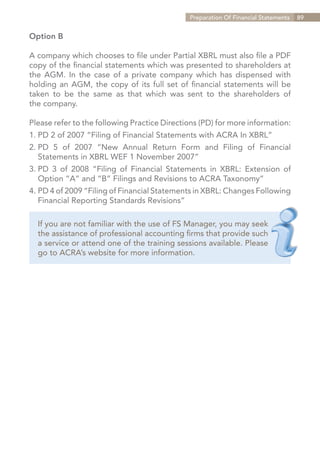
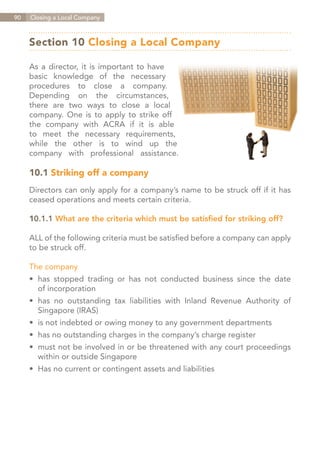
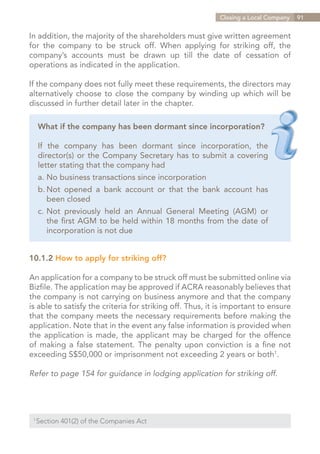
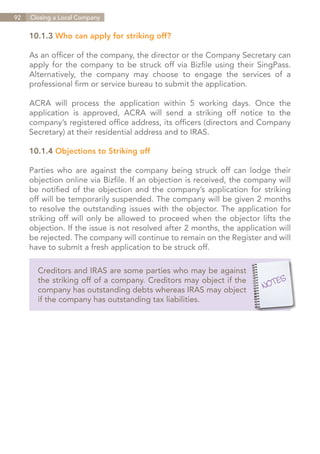
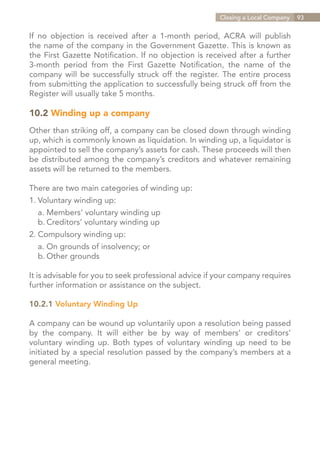
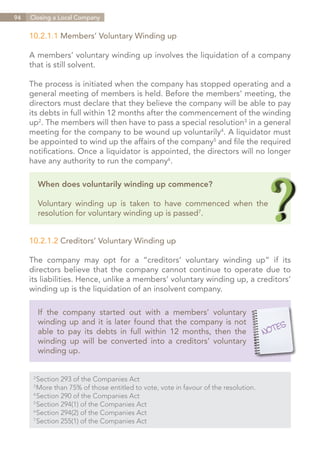
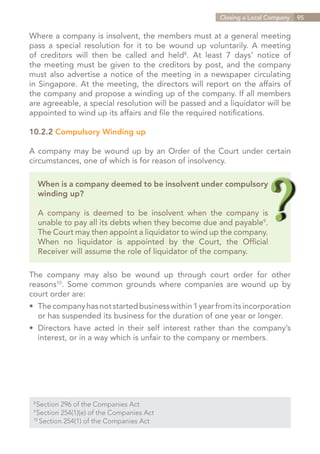
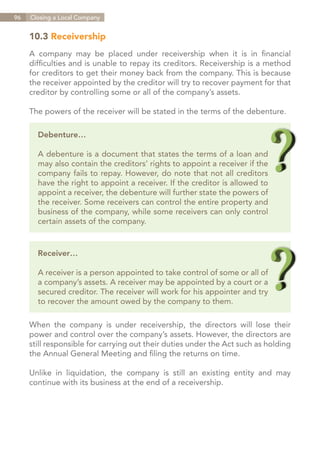
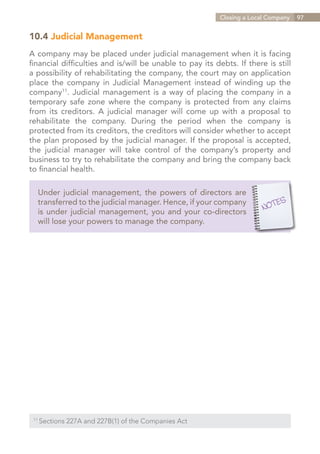
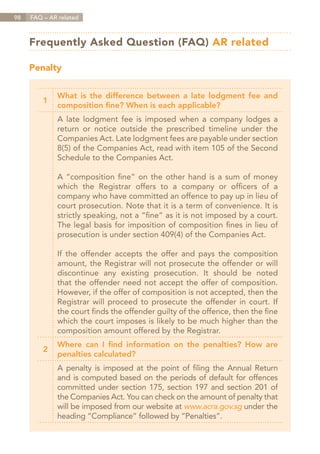
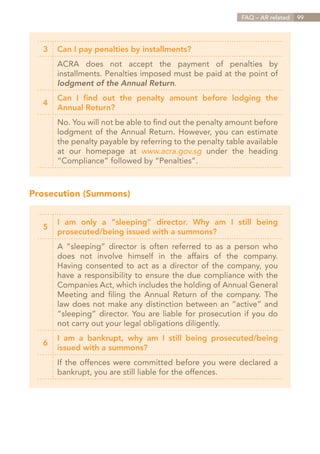
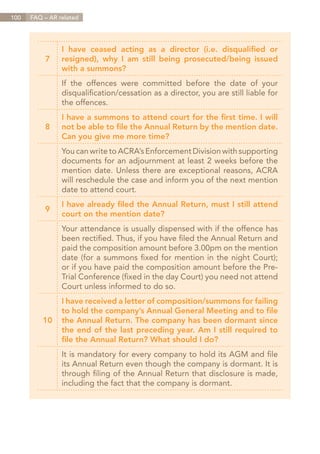

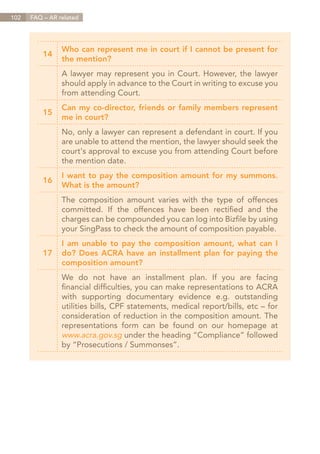
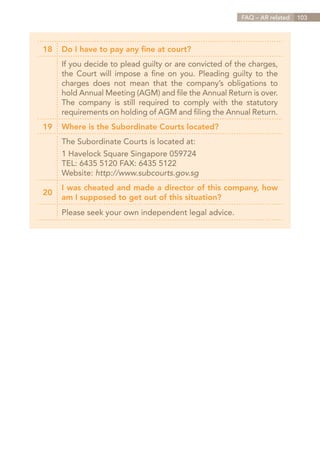
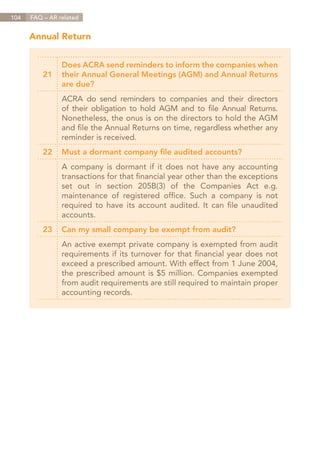
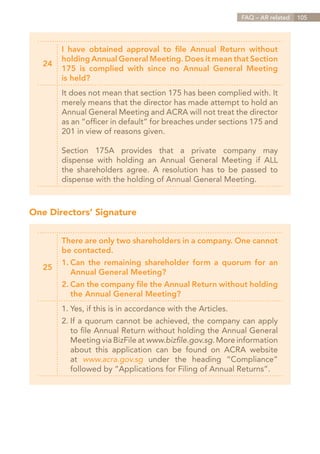
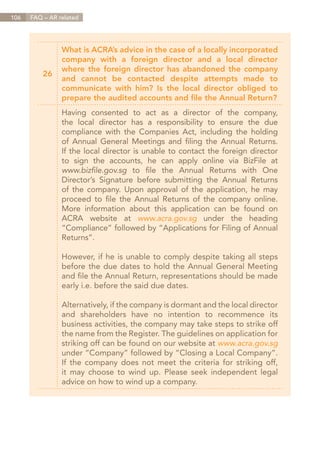
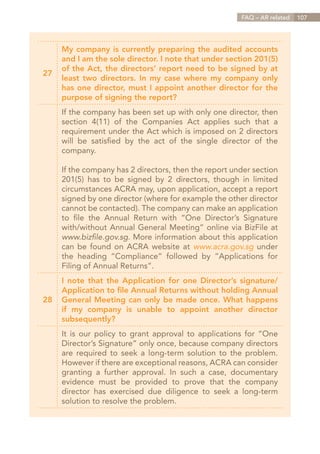
![108 FAQ – Non-AR related
Frequently Asked Question (FAQ) Non-AR related
Resignation matters
I wish to resign as a director of my company. How should I
1
do it?
You may resign as a director of your company as long as there
is one locally resident director (i.e. director whose usual place
of residence is in Singapore) remaining in the company after
your resignation. Your resignation must also be in accordance
with the company’s Articles of Association.
Usually the Articles provide that resignation be by notice in
writing to the company. If so, you should send your resignation
letter by registered article to the registered office of the
company.
The company is required by law to notify ACRA of your
cessation as a director within one month from your resignation
date. Failure to do so will also render the remaining director,
secretary or manager liable for an offence.
What if no one followed up to file the notice of cessation
2
with ACRA?
If you have resigned as a director but your cessation has not
been filed within the time frame or you have reasonable cause
to believe that the company will not lodge your resignation,
you may notify ACRA of your resignation via BizFile at
www.bizfile.gov.sg under the heading “Local Company”,
followed by “Applications Under the Companies Act” and
“Notification of cessation of appointment of director by that
director under section 173(6A)” one month after the date of
your cessation as a director. You are required to attach a copy
of the resignation letter together with the proof of delivery
by registered article or acknowledgement from the company
[remaining director(s)] with your notification. ACRA will look
into the matter and get back to you.
Contents](https://image.slidesharecdn.com/directorsroleresponsibilitysingaporeacra-130112234943-phpapp02/85/Directors-role-responsibility_singapore_acra-109-320.jpg)
